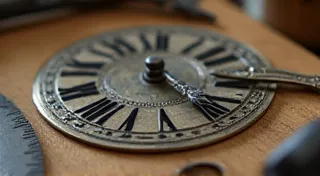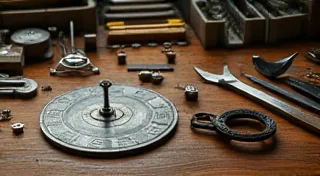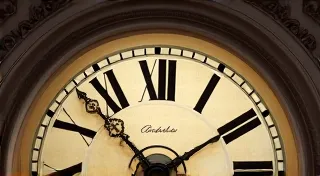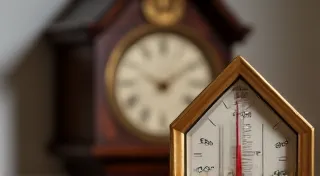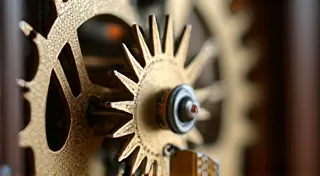Troubleshooting a Stopped Antique Grandfather Clock: Common Causes & Solutions
A silent grandfather clock can be a disheartening sight, especially after years of reliable timekeeping. Before calling a professional, many common causes of a stopped clock are easily diagnosed and resolved with a little patience and careful observation. This guide walks you through the most frequent culprits and provides practical solutions to get your antique grandfather clock ticking again. We're focusing on common issues - issues impacting many vintage clocks. Remember to always work safely and if you are uncomfortable with any of these steps, seek professional assistance.
1. The Pendulum – The Heart of the Clock
The pendulum is crucial for regulating the clock's timekeeping. Even slight disturbances can halt its swing.
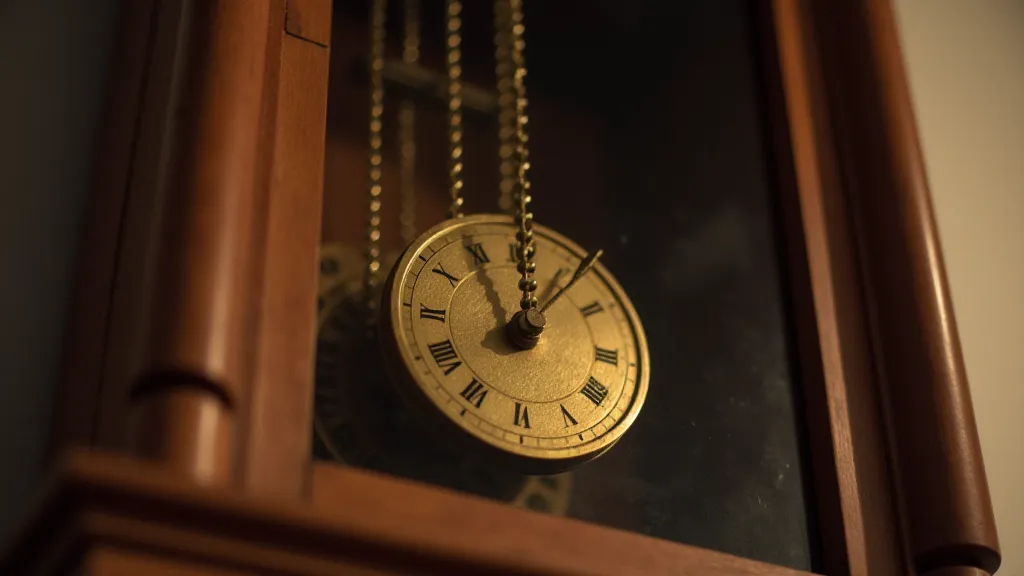
Common Problems & Solutions:
- Pendulum Obstruction: Ensure nothing is blocking the pendulum's swing. This could be as simple as a misplaced item or a build-up of dust.
- Incorrect Hanging: The pendulum must hang freely and evenly. Check the suspension spring or crutch (the mechanism holding the pendulum) for damage or misalignment. A slightly bent crutch can significantly impact performance. The proper length of the pendulum itself is also critical; if you suspect an issue with the pendulum itself, you might find replacing clock pendulums a worthwhile investigation.
- Pendulum Length: While less common, an incorrect pendulum length will throw off the clock’s accuracy and potentially stop it altogether. Refer to your clock's documentation or seek expert advice if adjustment is needed.
2. Cable Issues – Powering the Movement
Grandfather clocks utilize cables to transfer power from the weights to the movement, driving the gears and ultimately the pendulum. Cable problems are a frequent cause of stoppage. Understanding how these cables function is key to diagnosing issues; sometimes, the best solution involves replacing clock cables entirely. The process can be complex, and professional assistance is often recommended for damaged or worn cables.
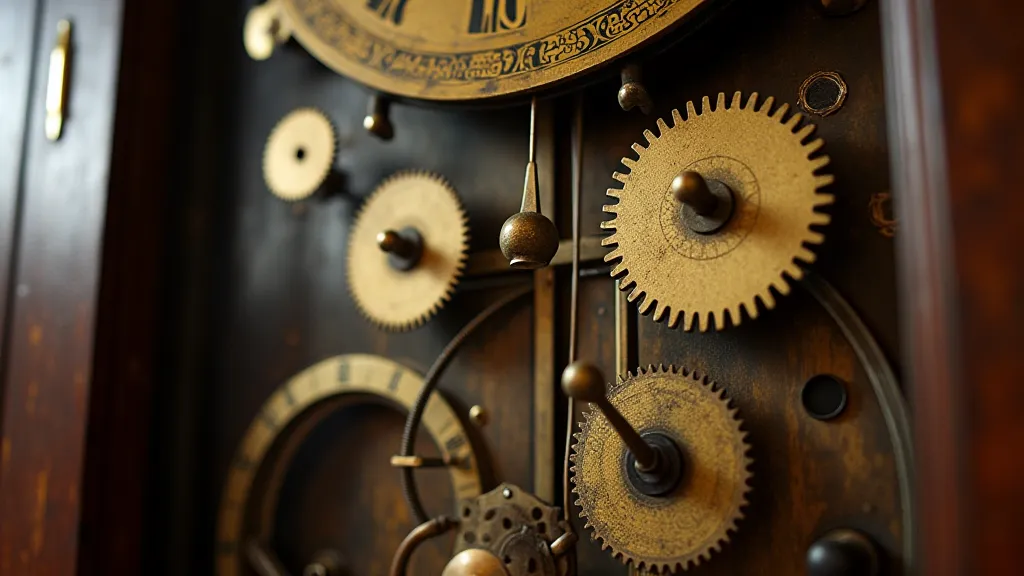
Common Problems & Solutions:
- Tangled Cables: Inspect the cables for tangles. Sometimes they can become knotted, preventing smooth operation. Gently untangle them if possible.
- Broken Cables: Visually examine the cables for breaks. Replacement is necessary for damaged cables. This is often best left to a professional.
- Cable Friction: The cables should run freely over the pulleys. Inspect the pulleys for damage or excessive friction. Lubrication with clock oil may help, but damaged pulleys require replacement.
The weights provide the force that drives the clock's mechanism. Their proper positioning and movement are vital for accurate timekeeping. The way the weight system is built in is often quite intricate, and a disruption in any part of that system will cause issues.
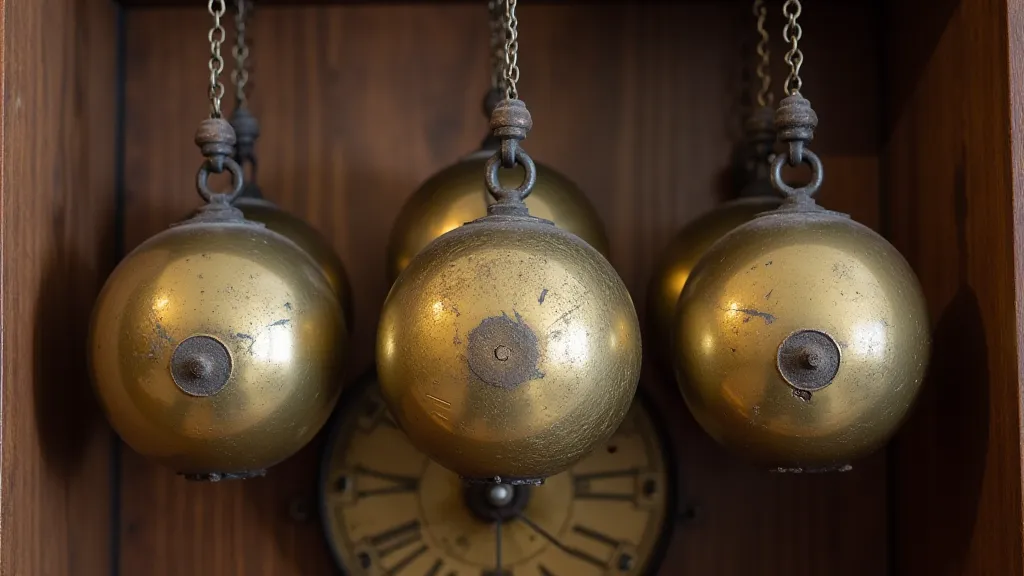
Common Problems & Solutions:
- Weight Interference: Ensure the weights are hanging freely and aren't rubbing against the case or other components.
- Incorrect Weight Placement: Grandfather clocks often have multiple weights (time, chime, and possibly others). Ensure they are hung in their designated positions. Markings on the weights often indicate their correct placement.
- Weight Too Low: Sometimes a weight can descend too far, triggering an automatic stopping mechanism. This is more common in clocks with safety features.
4. Movement Issues – The Delicate Mechanism
The clock’s movement itself can be the culprit, although these issues often require professional expertise. Understanding the finer points of clock mechanisms is a very specialized skill; the very act of dismantling and reassembling an antique clock movement is a testament to the complexity involved. Even with detailed instructions, it's easy to damage delicate parts.
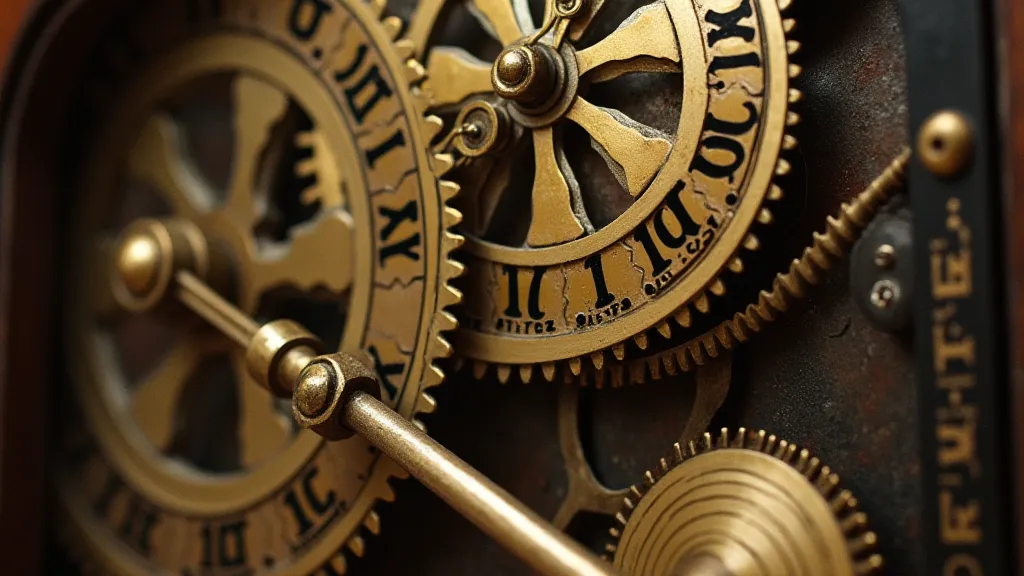
Common Problems & Solutions:
- Dirty Movement: Dust and debris can gum up the gears, hindering their movement. A gentle cleaning with specialized clock cleaning solution (use sparingly!) *might* help, but disassembling the movement is best left to a professional.
- Dried Oil: Over time, the lubricant in the movement dries out. Re-oiling with specialized clock oil can improve performance, but proper technique is essential to avoid damaging the mechanism.
- Broken Gears: A broken gear is a more serious issue requiring repair or replacement by a qualified clock repair professional. The level of detail within the movement can make diagnosing and repairing a broken gear difficult, even for experienced repairers.
The Clock Case: Maintaining the Aesthetics and Structural Integrity
While functionality is paramount, the visual appeal and structural integrity of your grandfather clock’s case also contribute to its overall value and enjoyment. Cracks, warping, or damage can affect the clock’s performance and overall beauty. If you've noticed any issues with the case itself, there are often specific restoration methods available. You might find identifying and repairing cracked clock cases a worthwhile endeavor to preserve your heirloom.
Preventative Clock Maintenance
Regular maintenance can prevent many of these issues. Consider these steps:
- Dust Regularly: Keep the clock case and movement free from dust. Use a soft brush or cloth to gently remove dust from all surfaces.
- Lubricate Periodically: Have a professional lubricate the movement every few years. This is often the single most effective way to prolong the clock's life.
- Listen for Unusual Noises: Pay attention to any unusual sounds coming from the clock, which may indicate a developing problem. Clicking, grinding, or squeaking noises can be early warning signs of mechanical issues.
- Check for Humidity Fluctuations: Extreme changes in humidity can warp wooden components and affect the movement. Consider using a humidifier or dehumidifier to maintain a stable environment.
- Protect from Direct Sunlight: Direct sunlight can fade the finish and damage the wood. Position the clock away from windows or use curtains to filter the light.
Troubleshooting an antique grandfather clock can be a rewarding experience. By understanding the common causes of stoppage and following these simple solutions, you can often restore your clock to its former glory. Remember to proceed with caution and seek professional assistance when necessary. Your grandfather clock is a piece of history, and careful attention will ensure it continues to chime for generations to come.
